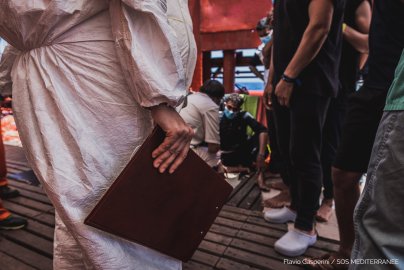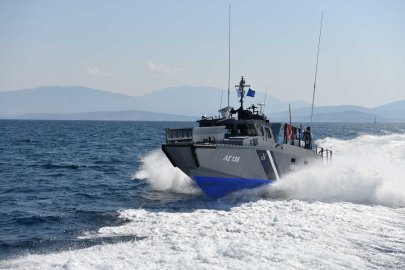Migration an emergency for humanitarian reasons not numbers, IOM
Source: InfoMigrants: reliable and verified news for migrants – InfoMigrants
Migration is not an emergency in terms of the number of arrivals but rather for humanitarian and operational implications that are being overlooked, Flavio Di Giacomo, spokesperson of the International Organization for Migration (IOM), said in a recent interview with ANSA.
“The numbers are low compared to the crisis of 2015 … and to what we saw last year: 8 million people fled from Ukraine, including nearly 5 million who obtained the status of special protection,” said Di Giacomo, spokesperson of IOM’s Coordination Office for the Mediterranean.
“How is it possible that Europe was able to manage so well a crisis that cannot be compared to these few tens of thousands of people fleeing in particular discrimination in Tunisia and Libya?
“Europe’s response to this flow is not getting the point by creating an emergency that I don’t believe exists.”
The IOM spokesman spoke to ANSA on the sidelines of the ‘Sister-Led Dialogue’ meeting on migration held on Monday, July 3, at the Rome headquarters of the International Union Superiors General (UISG).
‘Once a route is closed, a longer, most dangerous one opens’
Di Giacomo said there are two emergencies at the moment — a humanitarian one, due to the number of deaths, and a logistical-operational one, as most people arriving by sea arrive in Lampedusa.
“If 65,000 people reach Lampedusa, there are many, but if we distribute them across Italy, we are looking at about 0.1 or 0.2 of the national population, an insignificant number,” insisted Di Giacomo, stressing that there is no emergency in terms of the scale of arrivals. He also called the externalization of migration to third countries “short-sighted”.
“If you close a route, as occurred with the Turkish one, a longer, more dangerous (route) will open,” he said, referring to the Pakistanis and Syrians who died and went missing in the recent shipwreck off Greece, who used to arrive through the Balkan route.
“The people who are currently fleeing Tunisia had been living there for years, they are now fleeing” due to racism against African migrants, he said.
“There is a racial problem, like in Libya, thus it is not possible to talk with these countries of departure.”
‘Europe must prioritize rescue missions at sea and open safe pathways’
Rescuing people at sea remains a priority, said the IOM spokesman. He said that it is not possible for each boat to wait for many hours or more than a day before a European coast guard begins a rescue operation.
“A migrant boat is never suitable for navigation and thus in danger, because to sail the high seas you need legal requirements that an old, broken and overloaded migrant boat certainly doesn’t have. Once it is sighted, it must be rescued (…).”
Di Giacomo said that very often, such as in Cutro (Calabria) and on other occasions, the lack of prompt intervention was justified saying that navigation was going well when in fact a boat can sink in a matter of minutes.
“Europe must prioritize rescue operations at sea, but this isn’t happening,” said the IOM spokesperson.
He also denounced the criminalization of NGOs operating migrant-rescue vessels and the theory that NGO-operated boats constitute a ‘pull factor’ encouraging illegal migration, “which has been denied but all available data,” he noted.
Figures show that “there is the same number of departures both in the presence and absence of rescue vessels at sea,” Di Giacomo stressed.
Legal pathways
He called for the opening of safe pathways of migration, as “also requested by the private sector”.
“The demographic crisis will lead to a major reduction of the working age population in 20 years: it is irreversible, and all institutes are saying this.”
He added that “We need to deal with the causes that are driving people to leave with fair agreements with countries, not like the ones so far” which are aimed at “repatriations at all costs.”
“We have a very Europe-centric vision but not everyone wants to come to Europe, which thinks it is at the centre of the world although it hasn’t been for decades,” he commented.
Moreover, he noted, “an increasingly older and richer world can welcome flows coming from the South. We need migration and migration needs us, so it is a win-win situation – the sooner we manage it the better.”
The original article: belongs to InfoMigrants: reliable and verified news for migrants – InfoMigrants .




